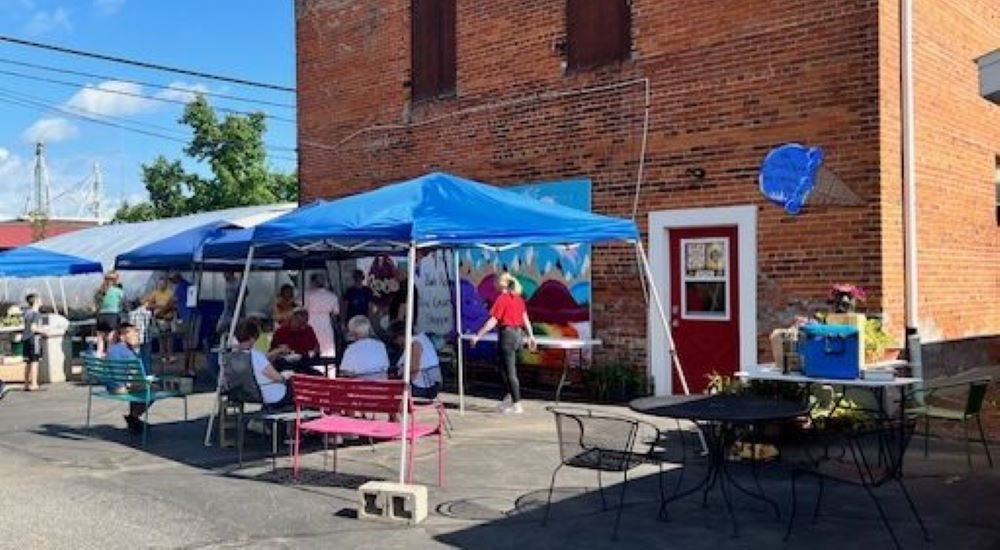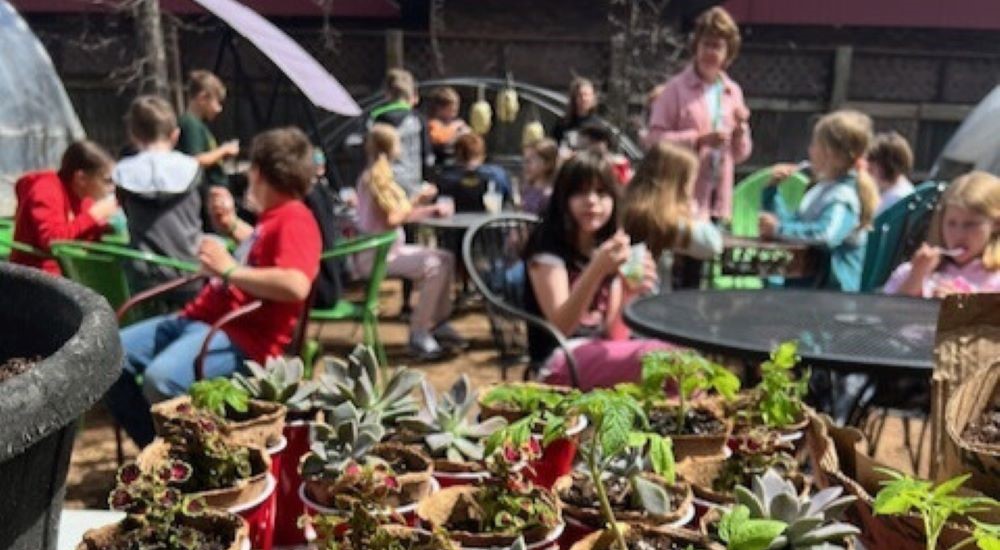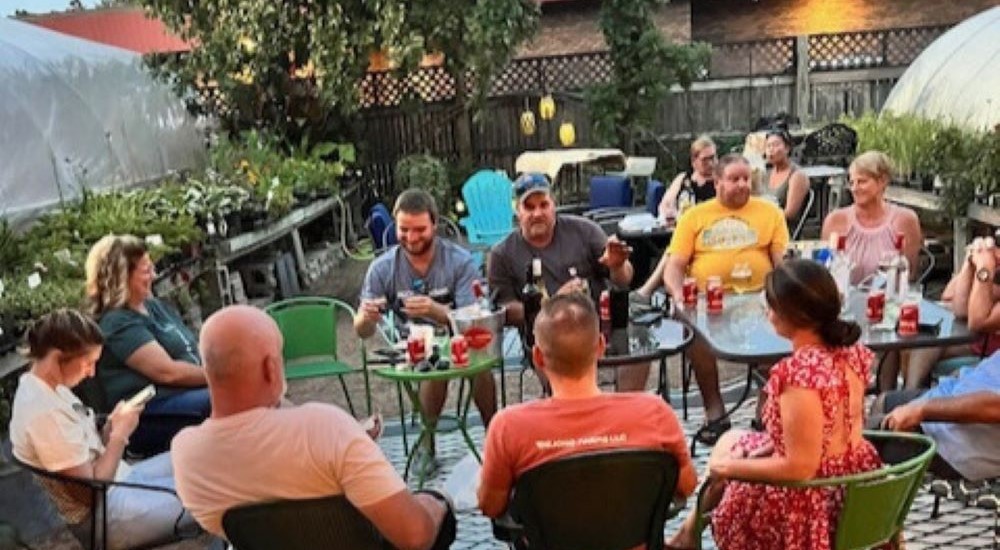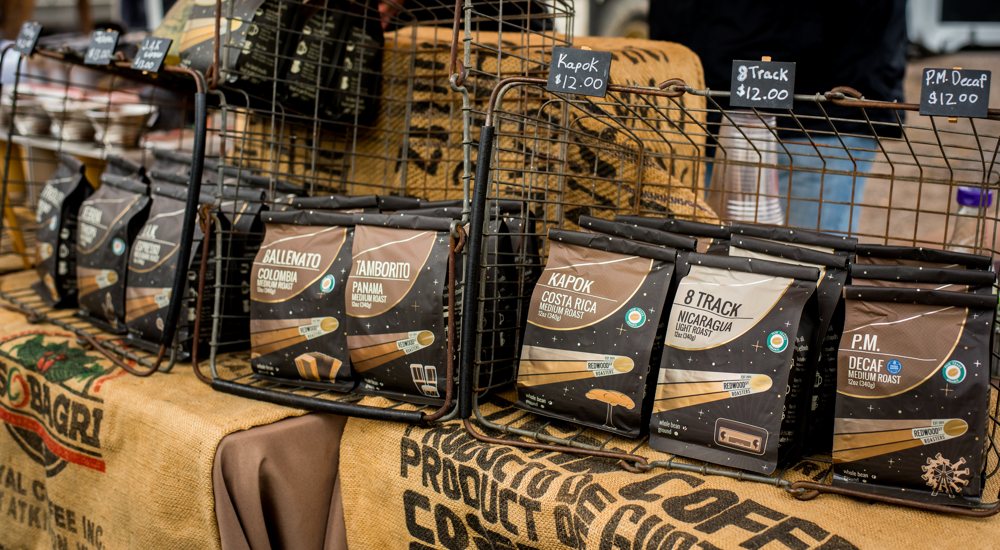Redwood St Roasters may be best known today for its small-batch coffee blends and creamy nitro cold brew, but the business has deep, generational roots in Edgar, Wisconsin.
The building it calls home has evolved alongside the town for over 100 years, from general store, to meat market, to video store, to ice cream parlor. In 2015, a family with deep local roots turned it into a coffee roasting business with a bold vision: to be a source of pride and a gathering place for their community. Truly a family effort, Redwood St Roasters is owned and operated by sisters Amber Haemer, Krystle Guerrero, and Jennifer Zaffke and their husbands, Wyatt Haemer, Francisco Guerrero Silva, and Aaron Zaffke.

Facing the Pressure, Staying the Course
The challenge Redwood St Roasters faced as a coffee roaster was twofold: tight margins and big competition. “Coffee is a daily ritual for people,” says Francisco. “But that also means a lot of competitors, especially big companies that can drop prices and throw in free equipment.” Because Redwood St Roasters sources ethically and prioritizes fair trade and organic beans, their input costs are higher. That makes competing on price a constant issue.
At the same time, they’re based in a rural area. “The town of Edgar has 1,500 people, so we needed to look to nearby places like Wausau to grow,” he adds. Expanding without sacrificing quality or burning out was going to take some creativity in locating support.
From gardening activities and educational field trips to art shows and soup competitions, Redwood St Roasters has become a gathering space that reflects the unique rhythms of small-town life.
A Strategic Growth Partner
Redwood St Roasters connected with the Food Finance Institute through the Fellows Program. With FFI’s support, they clarified their business model, identified where they could gain efficiency, and successfully applied for a WEDC grant.
The WEDC grant has allowed them to move forward with a building expansion that will triple their production capacity. But the value wasn’t just in the money; it was in the structure and accountability. “The funding lets us take that next step,” Francisco says. “But working with FFI gave us the confidence to do it with a plan.”

Scaling Innovation, One Can at a Time
Redwood St Roasters’ ability to test and scale new products in-house has been key. “We were developing nitro cold brew at the same time the big companies were,” Francisco says. “We just did it on a micro scale.” Today, their canned nitro offerings include locally inspired flavors like maple syrup, cinnamon, hops, and ginger.
Most of their growth has come through word-of-mouth, supported by a strong community presence. Coffee classes, local festivals, and food truck nights are regular events. “We’re not just selling coffee,” says Amber. “We’re creating a space where people want to connect.”
From gardening activities and educational field trips to art shows and soup competitions, Redwood St Roasters has become a gathering space that reflects the unique rhythms of small-town life. Their upcoming expansion will build on that momentum, adding a dedicated event space, an ADA-accessible café, and more room for retail. The goal? To make the business not just a roastery, but a true destination.
Accomplishments with Fellows Program:
- Clarified their business model
- Food business efficiency
- Successful funding
A Mission Rooted in Community
From its origins as a general store and meat shop to today’s vibrant coffee roasting business, the Redwood St Roasters building has always adapted to meet the needs of the Edgar community. Francisco, Amber, and the rest of the family are carrying that legacy forward, not just through great coffee, but by creating a place where people gather, celebrate, and connect.

The expansion will do more than triple production; it will bring to life a vision of Redwood St Roasters as a true community hub. The new facility will include a welcoming café, space for educational programs, retail space, and expanded capacity for events like chalk festivals, holiday parades, food truck nights, and art exhibitions. “We want people to walk in and feel like this place is for them,” Amber says. “It’s not just about coffee. It’s about connection, belonging, and being part of something.”
Why Rural Businesses Matter
For Redwood St Roasters, growing the business is about more than increasing capacity. It’s about investing in the fabric of rural life. “If we want small towns to thrive, we have to support the businesses that make them worth staying in,” says Francisco. With the support they’ve received, their expansion reflects a broader mission: building a thriving, connected future in the heart of Wisconsin.

